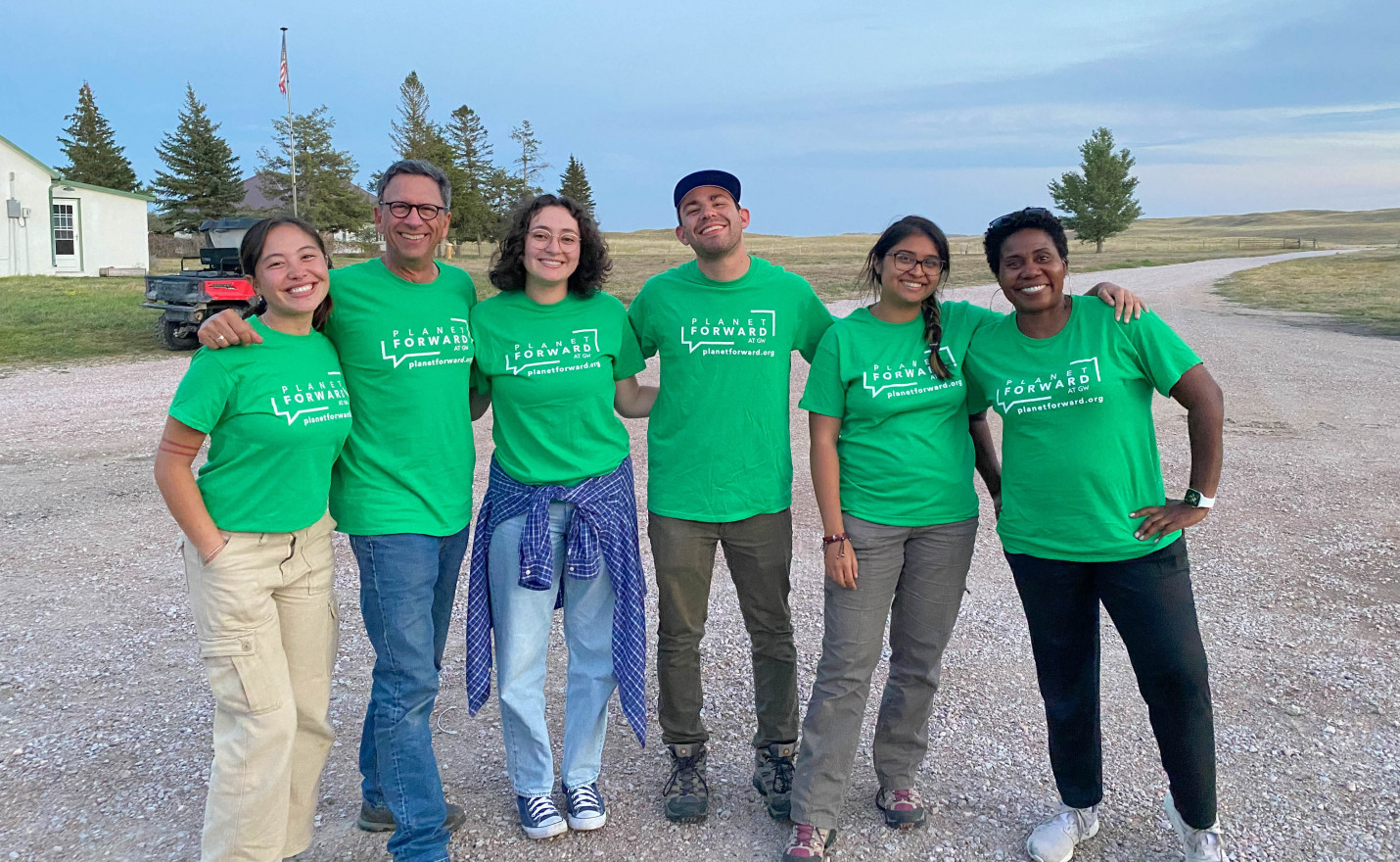
(From left to right) Eva Kotobuki Sideris, Frank Sesno, Hannah Krantz, Adam Goldstein, Vidya Muthupillai, and Dr. Imani Cheers.

(From left to right) Eva Kotobuki Sideris, Frank Sesno, Hannah Krantz, Adam Goldstein, Vidya Muthupillai, and Dr. Imani Cheers.
To see. To learn. To tell stories. That was our mission as we headed to the rural Sandhills of Nebraska to see what regenerative agriculture looks and feels like. Can this type of agriculture help us restore the soil, conserve the water, enrich the biodiversity of this and other regions, and lead to truly sustainable ways to grow our food?
Through the generous support of the Ted Turner Foundation, Laura Turner Seydel, and Berl Brechner, Planet Forward was able to bring four students to the expansive McGinley Ranch in northern Nebraska for a unique reporting adventure. The ranch team welcomed us with heartfelt hospitality. They shared their expertise and introduced us to a team of inspiring researchers. We learned the science and we dug into everything (quite literally) from soil health to the diets and digestion of grass-fed bison.
The nearly 80,000 acre property is the inaugural project of the Ted Turner Institute of Ecoagriculture and is a leading site of regenerative agriculture and sustainable bison ranching. The four Planet Forward students, who came from across the country, spent three days exploring and learning from McGinley’s experts and from ranchers and scientists. They participated in a low-stress approach to herding bison, inspected local stream health, studied the digestive processes of grass-fed bison, and more.
Each of the four students chose a topic to report on. They reported from the field, interviewed the ranchers and researchers, and saw with their own eyes – and cameras – just what’s being done. Their stories will publish on planetforward.org. Before the students were even back in class, however, they shared with us what the trip meant and what they learned on McGinley Ranch.
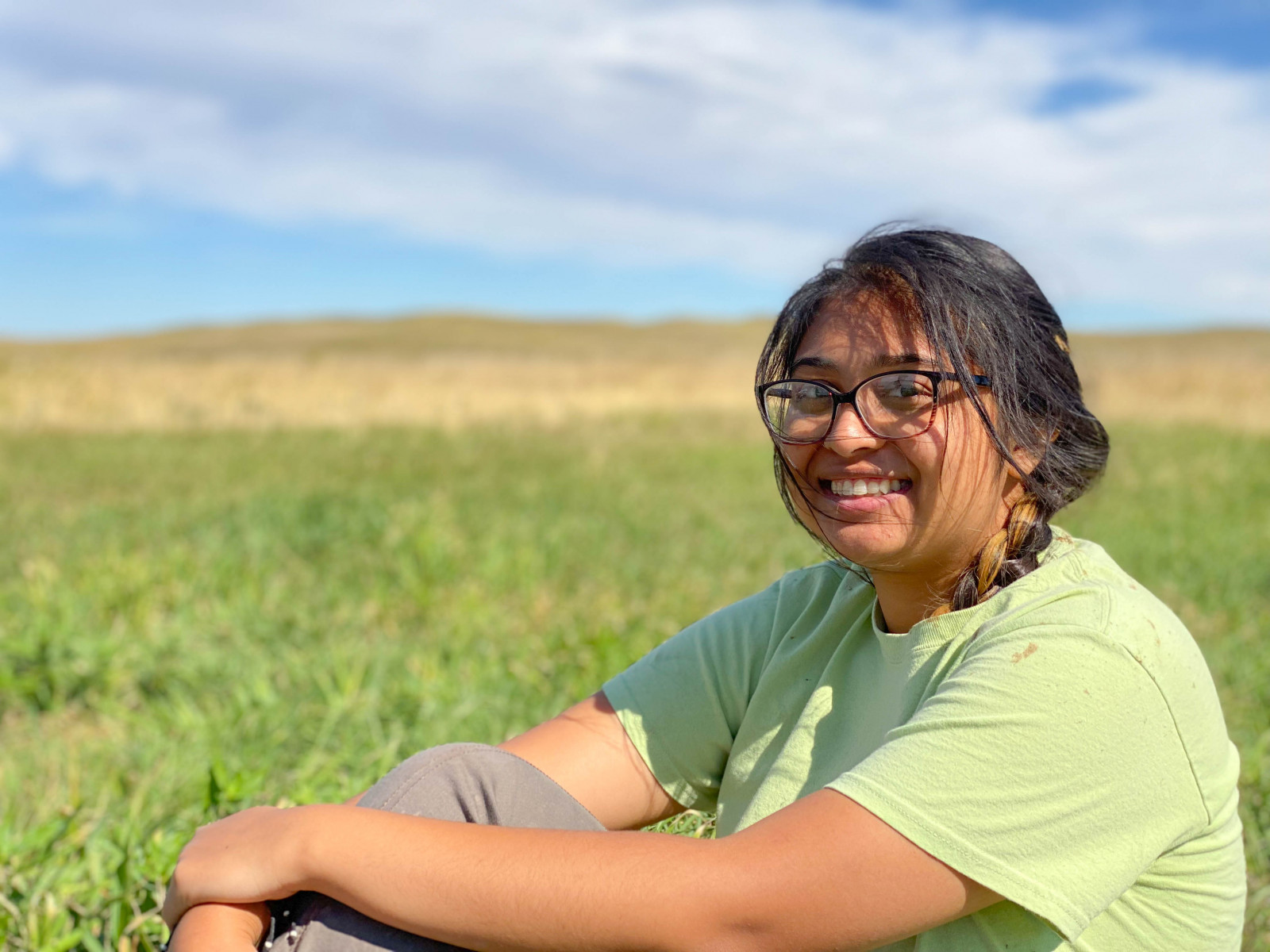
Coming from Texas, I always had some understanding of the agriculture community as an intersection of land and livelihoods, but experiencing the overlay of cultural and economic conditions with conservation elements firsthand will leave a lasting impression. Far removed from the national discourse on global climate change that I have become accustomed to, farmers and ranchers in the Great Plains are discussing, experimenting with, and implementing agricultural practices that have profound impacts on natural ecosystem services like carbon sequestration.
These conversations on carbon are not happening about atmospheric carbon in parts-per-million, but rather about the dollars flowing in and out through the soil that many ranchers have lived on for decades. As a student of public policy, I am especially confronted by the push and pull factors of transitioning to regenerative agriculture that I was able to glimpse through my conversations with McGinley Ranch’s generous staff.
Beyond the immense wealth of knowledge I’ve gained insight into, I will forever remember the incredibly unique experiences I had on the ranch that reinstilled my wonderment and curiosity in the land. From smelling the different soils of the plains to partaking in the low-stress Bison moving process to shoving my arm elbow-deep into the rear end of a bison to collect samples, I don’t think I’ve ever quite had a weekend like this one. And despite ending the second day covered in Bison excrement, dust, and grass seeds, I would 100% do it again.
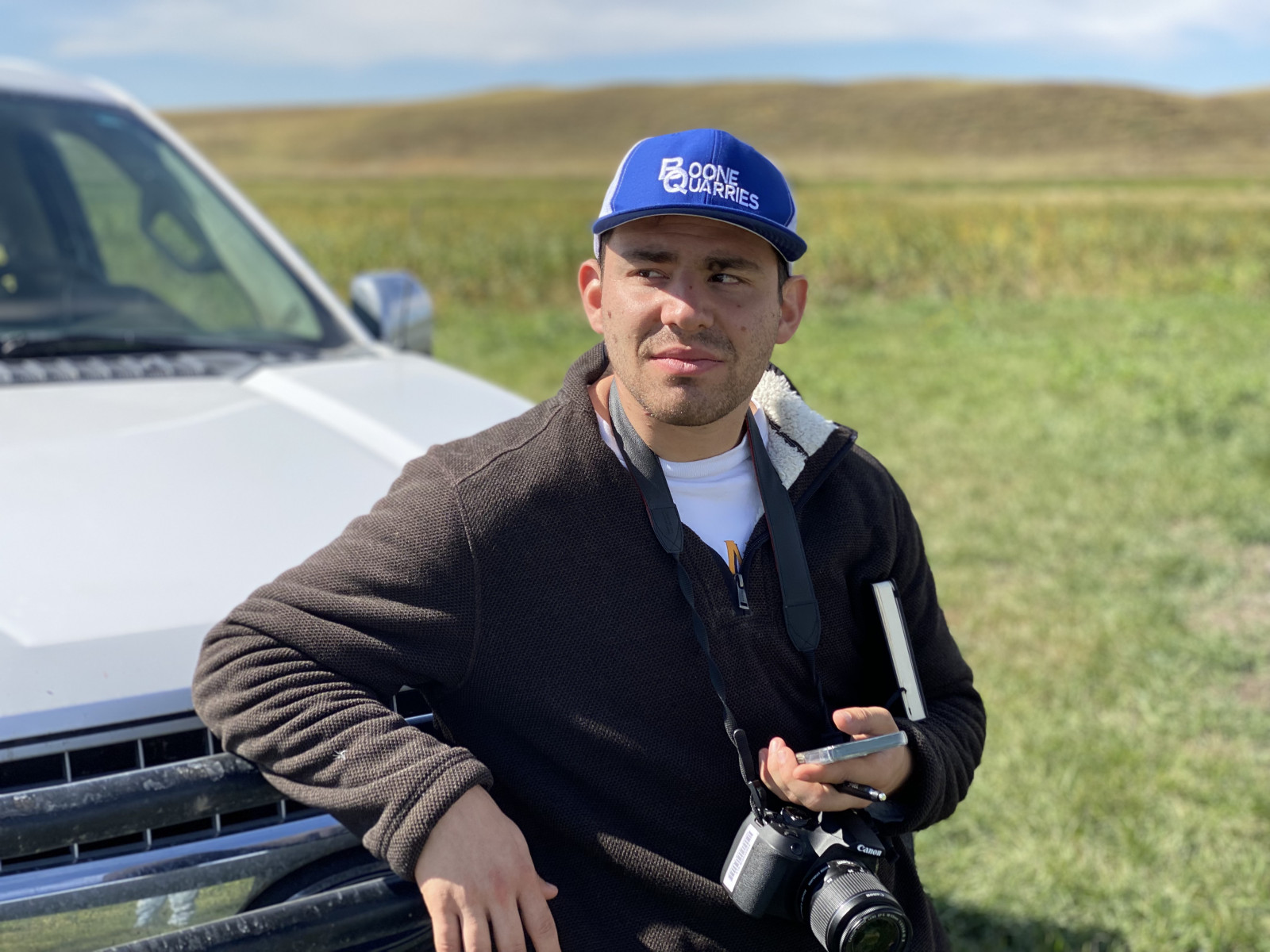
At McGinley, I came across a research operation that exceeded my expectations in its philosophical balance, forward thinking, and ecology-based approach to conservation. On the trip, we learned about the nonprofit model McGinley uses to fund research with land-grant universities. We also learned of the importance of their pro-bono ecological services to restore endangered species. And as someone who is more familiar with regenerative commodity farming, learning about regenerative ranching opened my eyes to potential stories I hadn’t envisioned prior. Seeing McGinley’s soil health, low-stress handling, and viable economic model in-person provided proof of a working concept that a press release cannot.
This recap, of course, does not account for the endless fun my peers and I had on the ranch. We zig-zagged across the prairie in two-by-twos, watched the stars from the Sand Hills, and ate perfectly-grilled bison steaks. I gathered dozens of story ideas and memories thanks to this unique experience. I would like to extend profound gratitude to Mark Kossler, Jessica Lovett, Tyrell McClain, and the rest of the McGinley crew for the hospitality they showed us. I also want to thank Frank Sesno, Dr. Imani Cheers, and the Planet Forward/GWU sponsors for the opportunity to join you all.
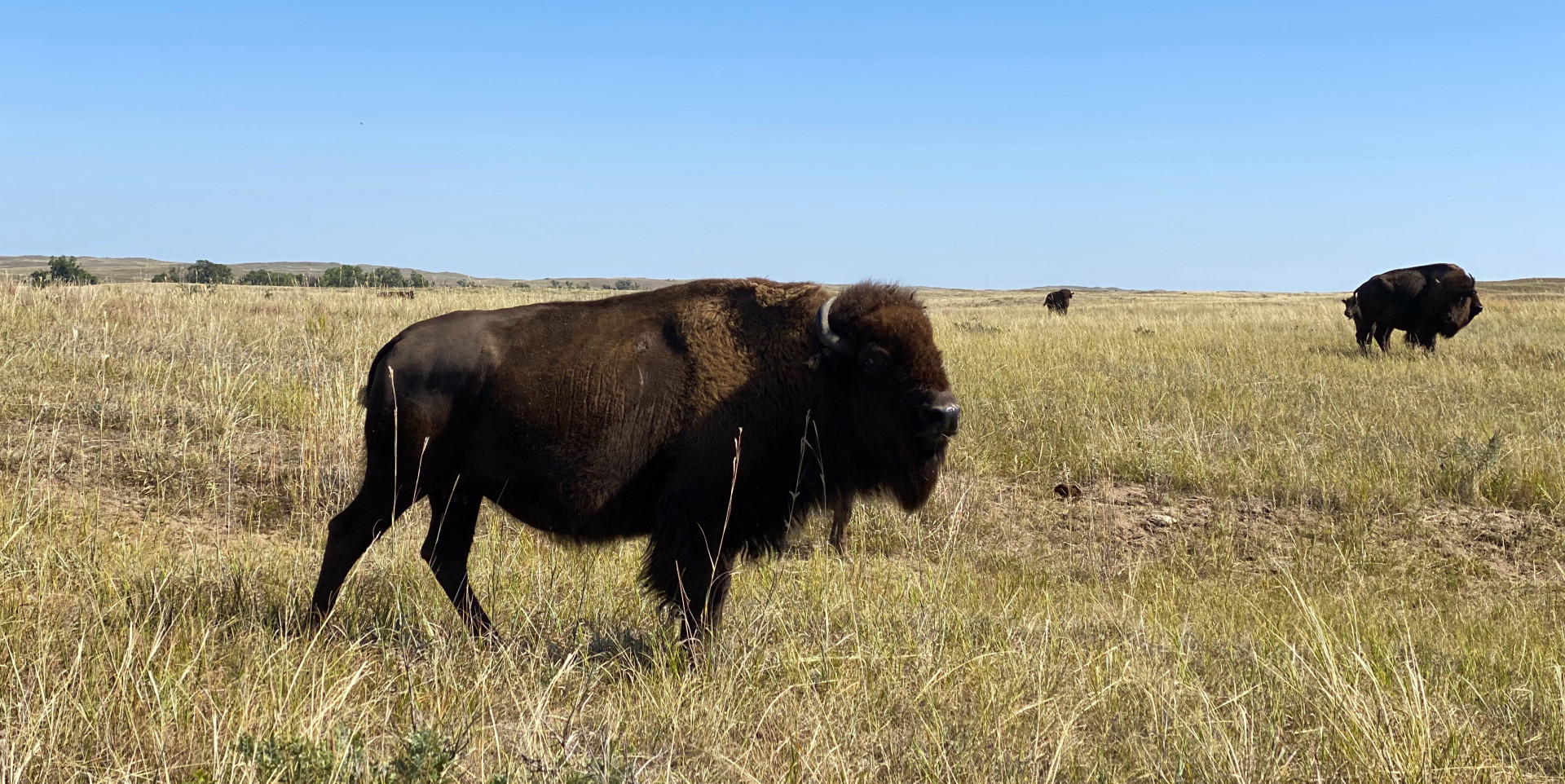
Between the hands-on experience of helping herd thousands of Bison across miles of land, listening to presentations from Ph.D. candidates from the University of South Dakota about their niche bison and agriculture research, and directly interviewing ranch techs, I learned so much. The most eye-opening information was about the principles of regenerative agriculture, a way of using the land that goes beyond just not harming it, and actually combats climate change and improves the quality of the land while still making a profit. Before this trip, I had learned a lot about sustainable agriculture, but didn’t know much about regenerative agriculture. I was almost overwhelmed with information in the best way.

The truly invaluable experiences came from the little moments in between the structured learning times. I spoke to a ranch tech for an hour about his livelihood and family while we drove back from herding the bison, I looked at the stars with my fellow student correspondents, I met the ranch manager’s gaggle of young daughters who took my hand and enthusiastically introduced me to many chickens by name and gave me a peek into a childhood with an 80,000 acre backyard. Beyond the science of regenerative agriculture, I learned a lot about the way of life that supports the rancher’s motivations, and got to understand their connection to the land.
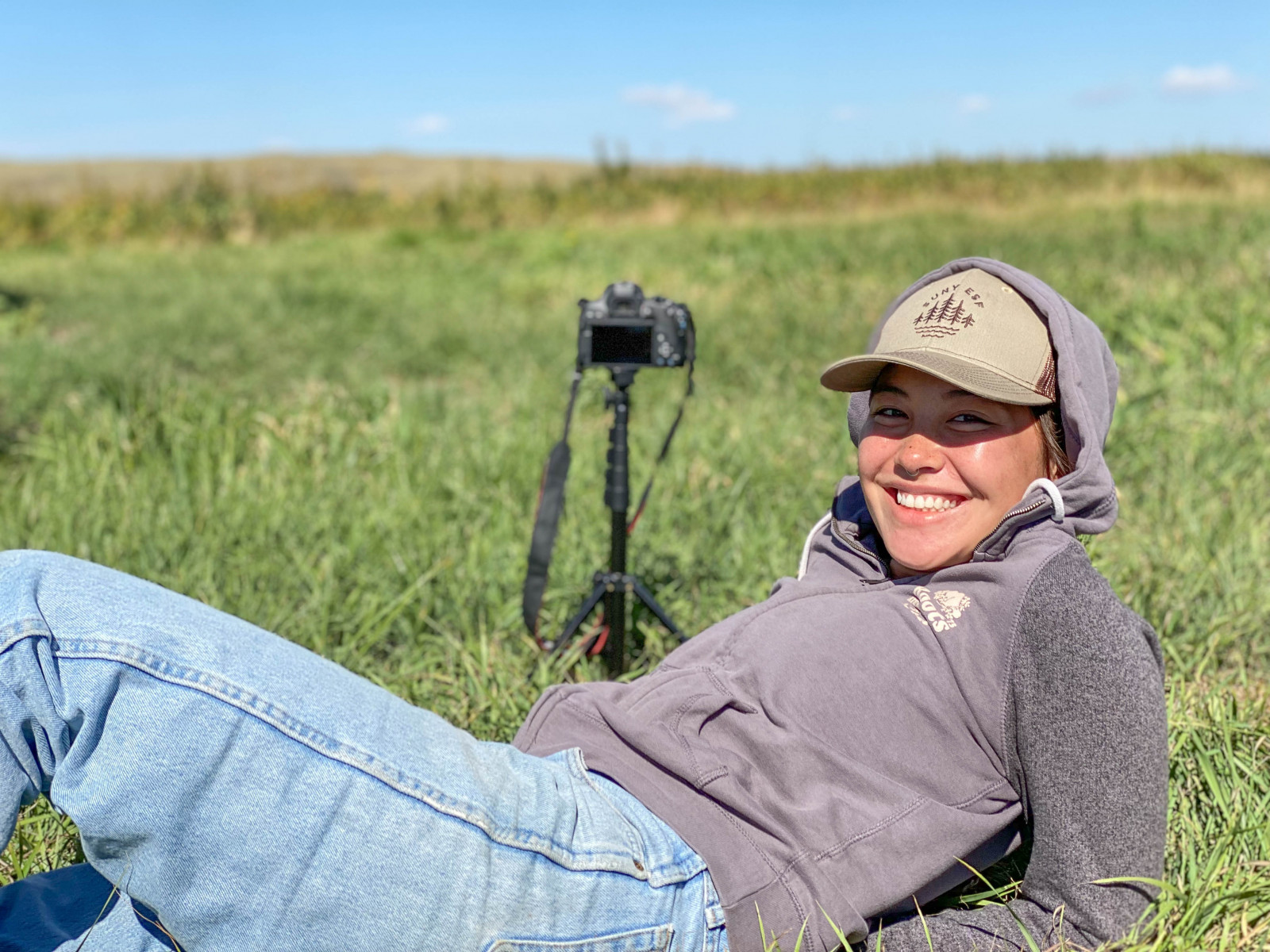
Each day, our hosts would present their research and current projects to inform us on how the land is managed, and also give us great content for our stories. Although I knew a bit about eco-agriculture prior to this trip, I did not realize its depth on a regenerative bison farm.
The prairies at McGinley Ranch support over 8,000 different types of plants that create highly specialized niches for other organisms, such as fungus, birds, and insects. The vegetation also improves soil quality and infiltration which supports excellent water quality for drinking and aquatic organisms. The sustainability of this complex ranch ecosystem requires grazing, making bison a keystone species.
I also enjoyed how each person I spoke to expressed their perspective on bison differently. The presentations covered a unique aspect of the bison that opened my perspective on the meat industry, health, sustainable farming, and nutrigenomics. My conversations also highlighted their personal connections to this animal, ranching, and gave me access to a wealth of experiential knowledge.
***
Stay tuned for these authors’ forthcoming articles and videos exploring the exciting new developments at McGinley Ranch!